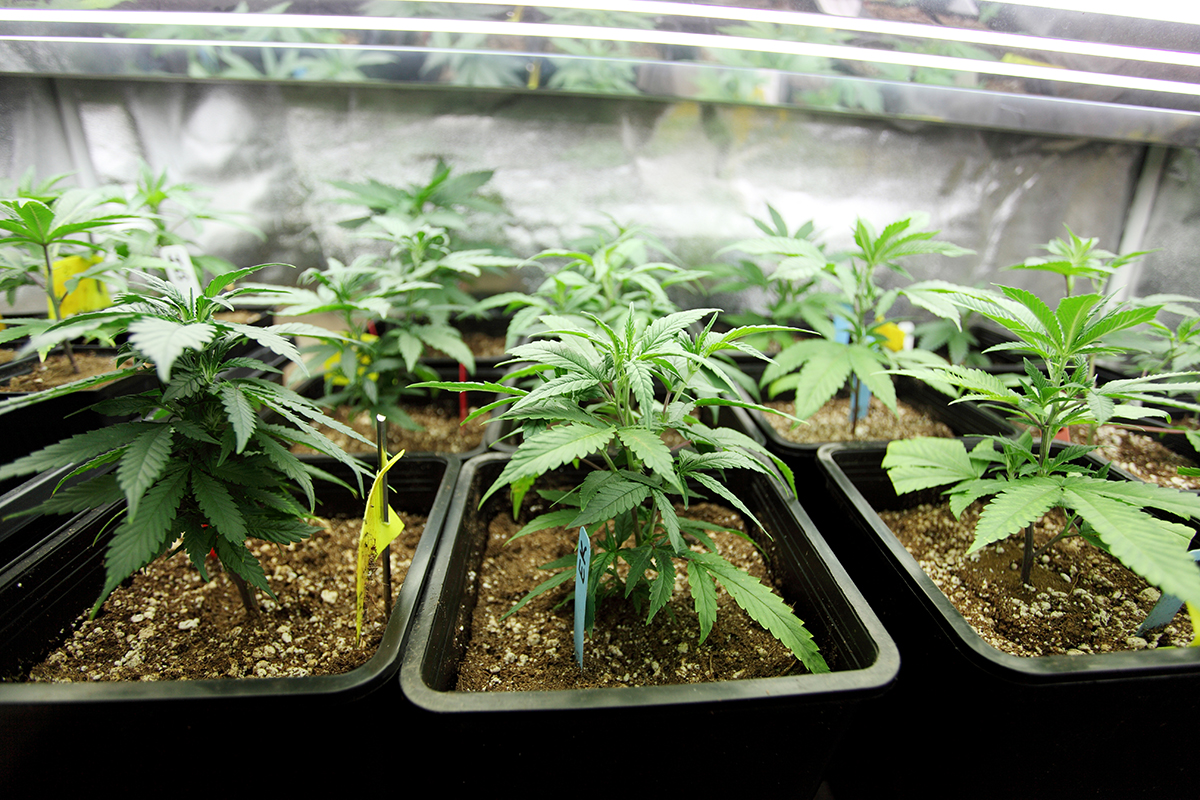State Legislators Travel to Colorado to Learn About Marijuana

Marijuana crop growing indoors via Shutterstock
Massachusetts voters have never met a marijuana ballot question they didn’t like.
In 2008, voters overwhelmingly passed a statewide referendum that decriminalized recreational marijuana usage, reducing penalties for violations of the law to a mere civil infraction. Contrary to the fearmongering at the time, in the years since, the streets have not filled with stoners and Boston Common does not smell like the aftermath of a Phish concert. In 2012, voters approved a measure that legalized marijuana for medicinal purposes, though the rollout of this change has been a bit rocky. The first medical marijuana dispensary in the state opened during the summer of 2015, but the rollout of other dispensaries is hazy.
In 2016, voters are once again on the precipice of loosening the state’s marijuana laws, but this time they will face the option of legalizing recreational use on November ballots. If recent trends in polling and the last two elections are indicators, voters are likely to approve the legalization marijuana, making Massachusetts one of a handful of states where it is legal to light up and kick back.
With this major social and legal change on the horizon, the State Senate’s Special Committee on Marijuana traveled to Colorado this week to learn how they regulate a budding marijuana industry that is doing so well it generates higher state tax revenue than alcohol. The eight senators are touring the state’s marijuana businesses, talking to regulators, and engaging with law enforcement on how the state has changed since voters legalized recreational use of marijuana in 2012. Many legislators have not caught up with changing public opinion on drugs, particularly marijuana, and sometimes it shows.
“If I were to buy this, what would I do with it? Do I crush it? Roll it?” said Senator John Keenan of Quincy while inspecting a jar of marijuana in front of Boston reporters accompanying the legislators on their trip.
The trip has been billed as a fact-finding mission that will improve how lawmakers implement potential marijuana legalization legislation if it passes, be it at the ballot box in the fall or, in an extremely unlikely move, on Beacon Hill. Policymakers appeared unprepared in 2012 when voters overwhelmingly approved medical marijuana legalization, leading to a long and messy licensing process. Officials do not want a repeat of an embarrassing scenario that created a headache for municipalities across the state.
Many powerful people on Beacon Hill are opposed to marijuana legalization, including Gov. Charlie Baker and House Speaker Robert DeLeo, but it is unlikely that they will take action to repeal any voter-approved legalization measure. Instead, legislators appear determined to augment any kind of legalization legislation to their liking in order to improve the rollout and learn from other states that have traveled the same path as Colorado.


